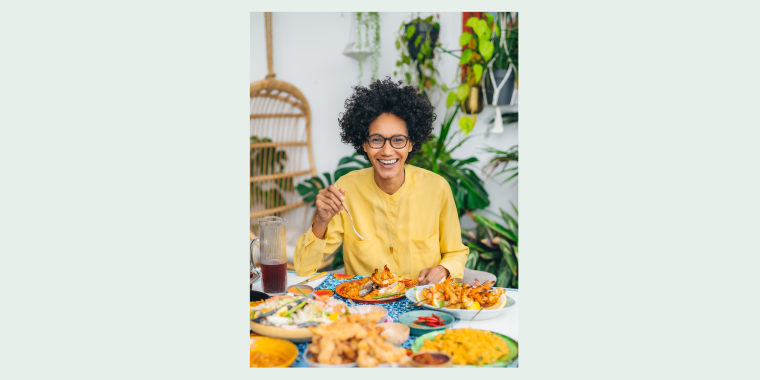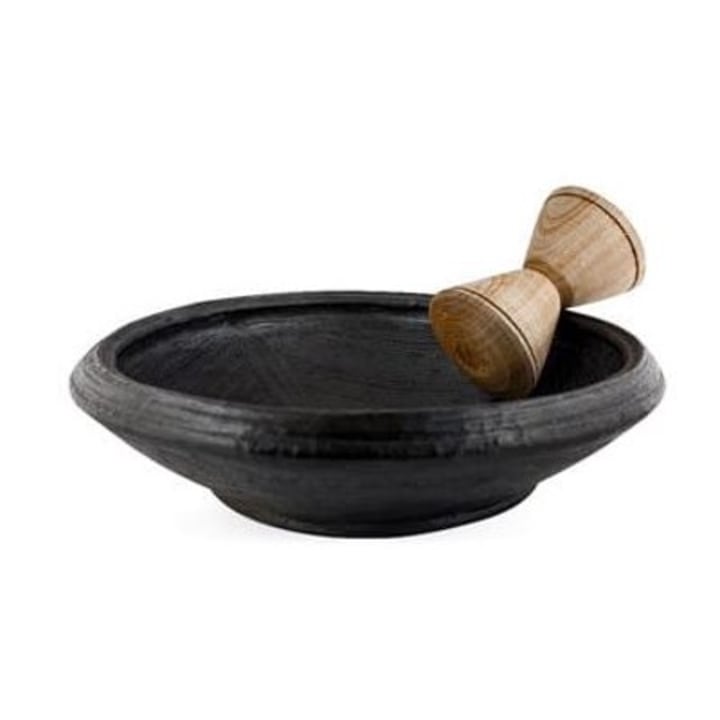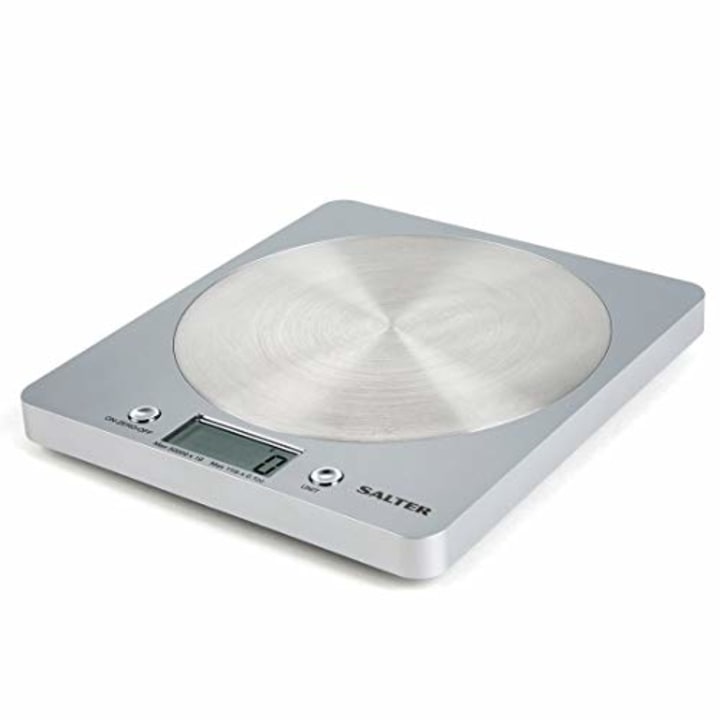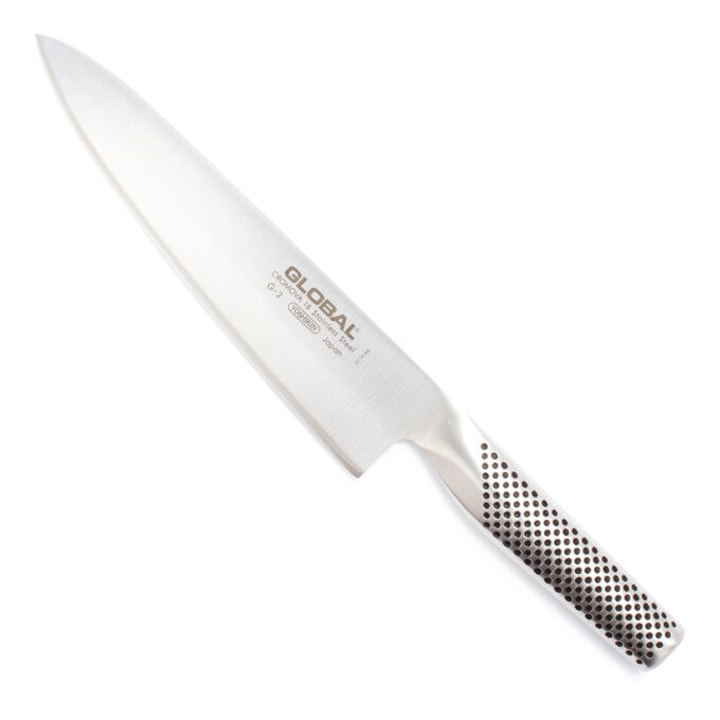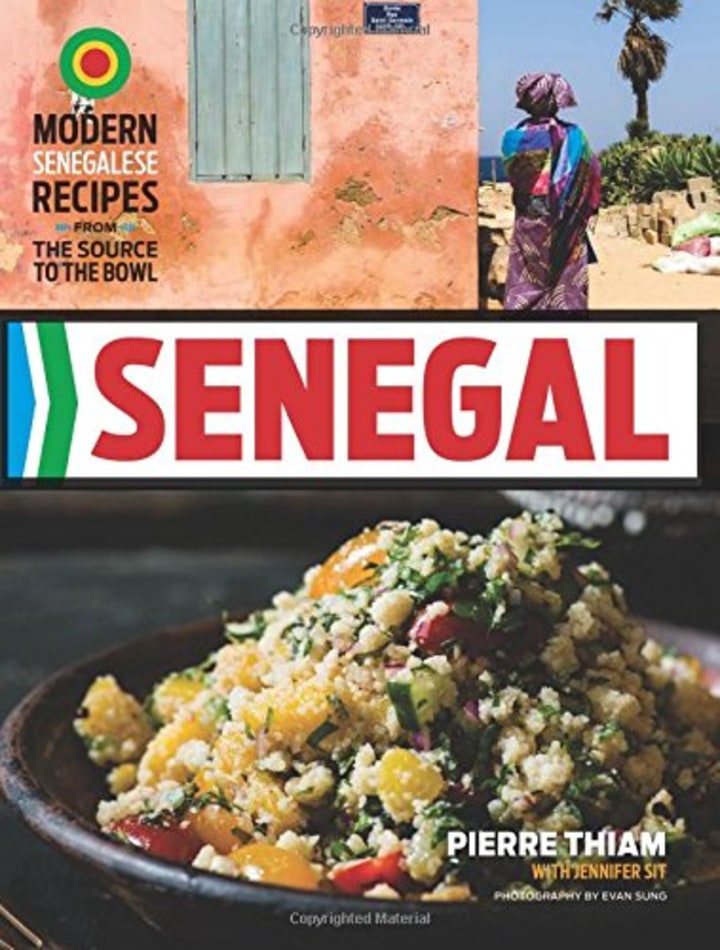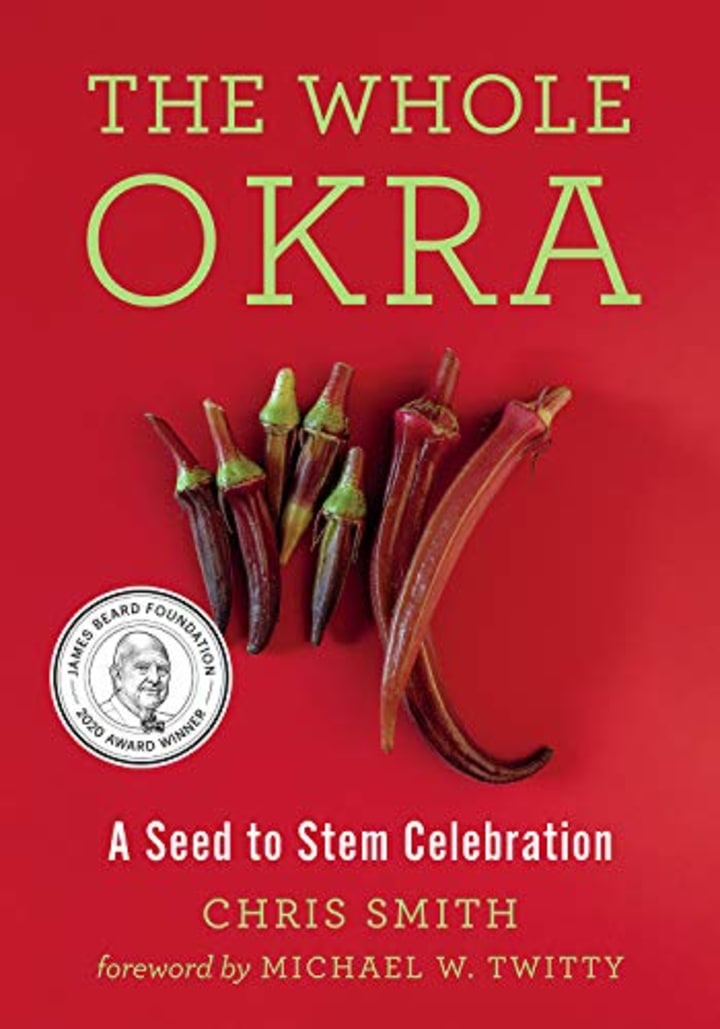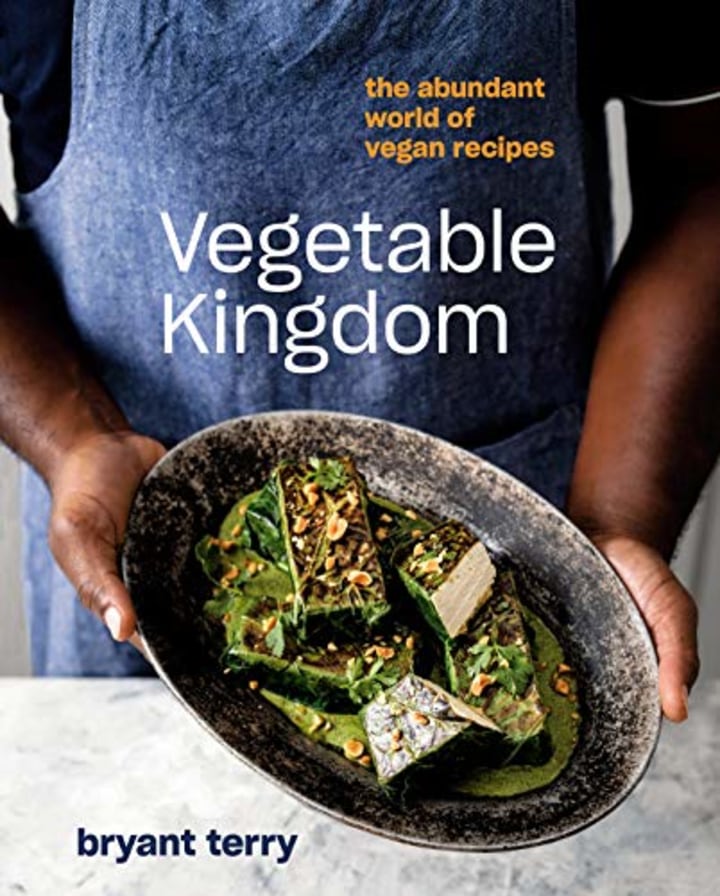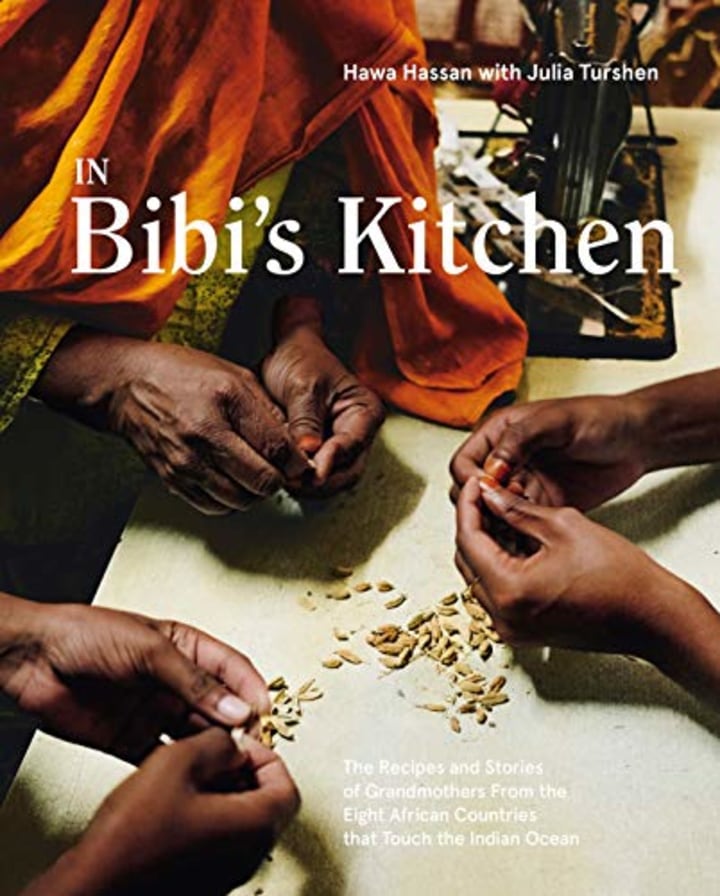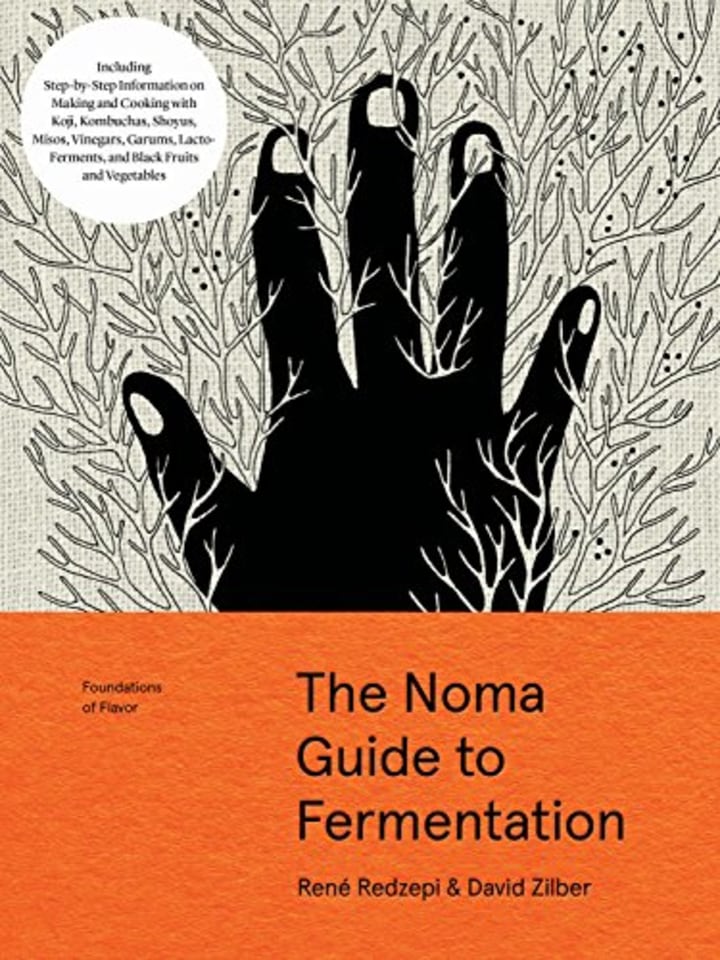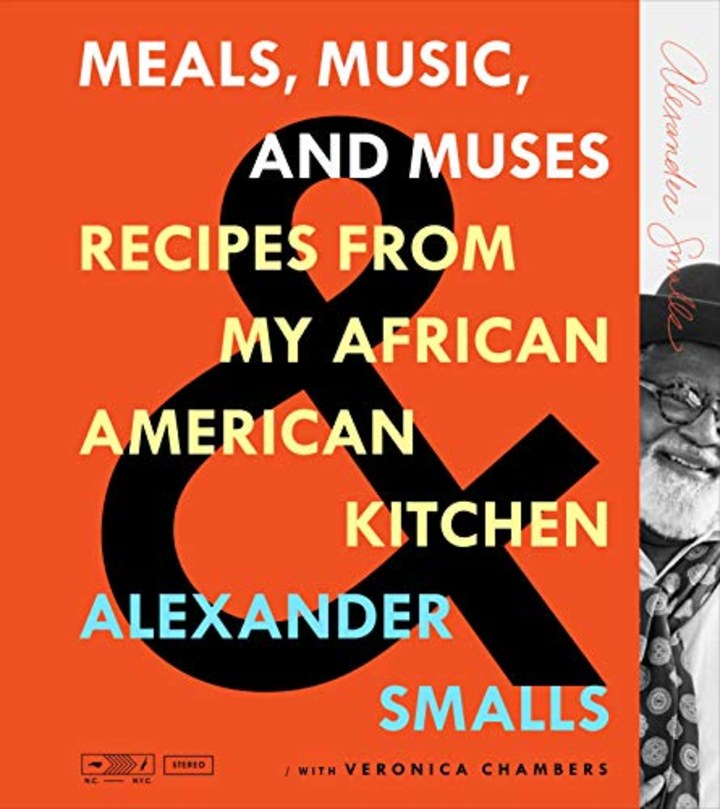Zoe Adjonyoh didn't set out to be a chef. In fact, to hear her describe it, her start in the culinary world was somewhat accidental.
In 2010, strapped for cash, Adjonyoh set up a stall at a local London arts festival, Hackney WickED, with a sign advertising for "Zoe's Famous Peanut Butter Stew," a rich combination of Scotch Bonnet peppers, lamb and peanut butter. The tantalizing scent soon drew a crowd.
"My whole thing was, I was going to be this amazing writer, so I was going to get my M.A. and start this new chapter of my life — but I had fun doing it," Adjonyoh said of the festival.
The following year, she decided to try it again, instead swapping her soup stand for a makeshift restaurant in an apartment. It filled with guests all weekend long, many of whom had never tried Ghanian food before. And so began Zoe's Ghana Kitchen, a supper club serving her modern take on traditional dishes.
"During that time, without me having much to do with it, other than just like cooking, it got picked up by blogs, it got picked up by the press, suddenly I was getting catering inquiries," Adjonyoh said. "It just grew very quickly, very organically."
Since then, Adjonoyoh has become a prominent voice in Ghanaian cuisine, releasing her cookbook "Zoe's Ghana Kitchen" in 2017. In the book, she shared stories of her childhood, growing up with her Ghanian father and Irish mother, and recipes, like chalé sauce (the first dish her father taught her to make), Fante fried fish and, of course, the peanut butter stew with lamb — all featuring her signature twist on traditional flavors.
"I try to describe it as traditional recipes, remixed," Adjonyoh, said of her cooking. "It’s not that I’m trying to change or depart from any of the flavor profiles, because that’s not it at all. But it's about how do we reinvent this a little bit? How do we re-imagine it in a way that's accessible and interesting and innovative and makes the most out of the ingredients and flavors? But it's always with respect to tradition and with respect to the mother recipe, where it comes from."
In a recent interview with the chef, we asked her about the kitchen tools she always keeps on hand and the cookbooks that she loves. Read on to see all her picks.
Asanka Pot
"Asanka is basically like a Ghanaian or a West African pestle and mortar," Adjonyoh said. "But it's a little bit more than that. You use an Asanka and a tapoli, it's called, to grind in there, but also you can put them on fire, so you can toast and grind spices at the same time because they're clay pots. They're also traditionally used to serve food in, so they're really versatile and they're beautiful."
Adjonyoh said she got hers in Ghana and she suspects that you can find them in African markets across the country. Though there are a few, like the one above, available online.
Salter Digital Kitchen Weighing Scale
Really good, accurate food scales are essential, Adjonyoh said, and she uses one from Salter in her own kitchen. The classic model can convert from grams to ounces or pounds, and the zero feature makes it easy to measure multiple ingredients in one bowl. When traveling, she brings along this portable micro-scale.
Global Knives
"I have two really good chef's knives, one is Global and one is Wüsthof, and I just kind of use them for everything," Adjonyoh said.
"Senegal," by Pierre Thiam
For the unfamiliar, chef Pierre Thiam's second book, "Senegal," will serve as an introduction to the vast cuisine of the coastal country. Featuring Thiam's creative and modern take on traditional dishes, readers will learn to make meals like lamb shank mafé and ndambe cakes, made from black-eyed peas and yucca.
"The Whole Okra," by Chris Smith
This exploration of okra, which Adjonyoh calls "fascinating," won a James Beard Foundation Book Award in 2020. Inquisitive foodies can learn about the history of the vegetable and its many uses, as well as discover recipes from well-known Southern chefs.
"Vegetable Kingdom," by Bryant Terry
Both meat-eaters and vegans alike can appreciate chef Bryant Terry's most recent cookbook, "Vegetable Kingdom." The book has received wide praise since its February 2020 release — it was named one of "the best cookbooks of the year" by The New Yorker, The Washington Post and more publications. It features more than 175 vegetable-focused recipes, showcasing a range of flavors from the African diaspora.
"In Bibi's Kitchen," by Hawa Hassan
Released in Fall 2020, Somali chef Hawa Hassan's debut cookbook tells the story of "bibis," or grandmothers, from eight African countries. Co-authored with veteran food writer, Julia Turshen, the two share stories and recipes, that speak to the power of family and tradition. Lauded as one of "the best cookbooks of the year," by multiple publications and recommended by Adjonyoh, it's an essential read for any chef.
"The Noma Guide to Fermentation," by René Redzepi and David Zilber
Every dish at Noma in Copenhagen, Denmark includes a fermented element. And in this book, the chef and co-owner, René Redzepi, and the chef behind the restaurant's fermentation lab, David Zilber, give a peek into their fermentation practices. From kombucha to miso, they break down the complex science into easy-to-follow recipes and techniques.
"Meals, Music, and Muses," by Alexander Smalls
"He's an opera singer, his background is in music and he's this huge icon in Harlem," Adjonyoh said of the accomplished author and chef, Smalls. His book, which she loves, showcases his talents as a chef and musician and explores the American South and the foods that shaped the regions.
For more stories like this, check out:
- These 5 clever products will help you finally organize your kitchen this year
- 12 best cookbooks by Black chefs and authors 2021
- Why an electric kettle is what your kitchen is missing
To discover more deals, shopping tips and budget-friendly product recommendations, download the new TODAY app and subscribe to our Stuff We Love newsletter!
